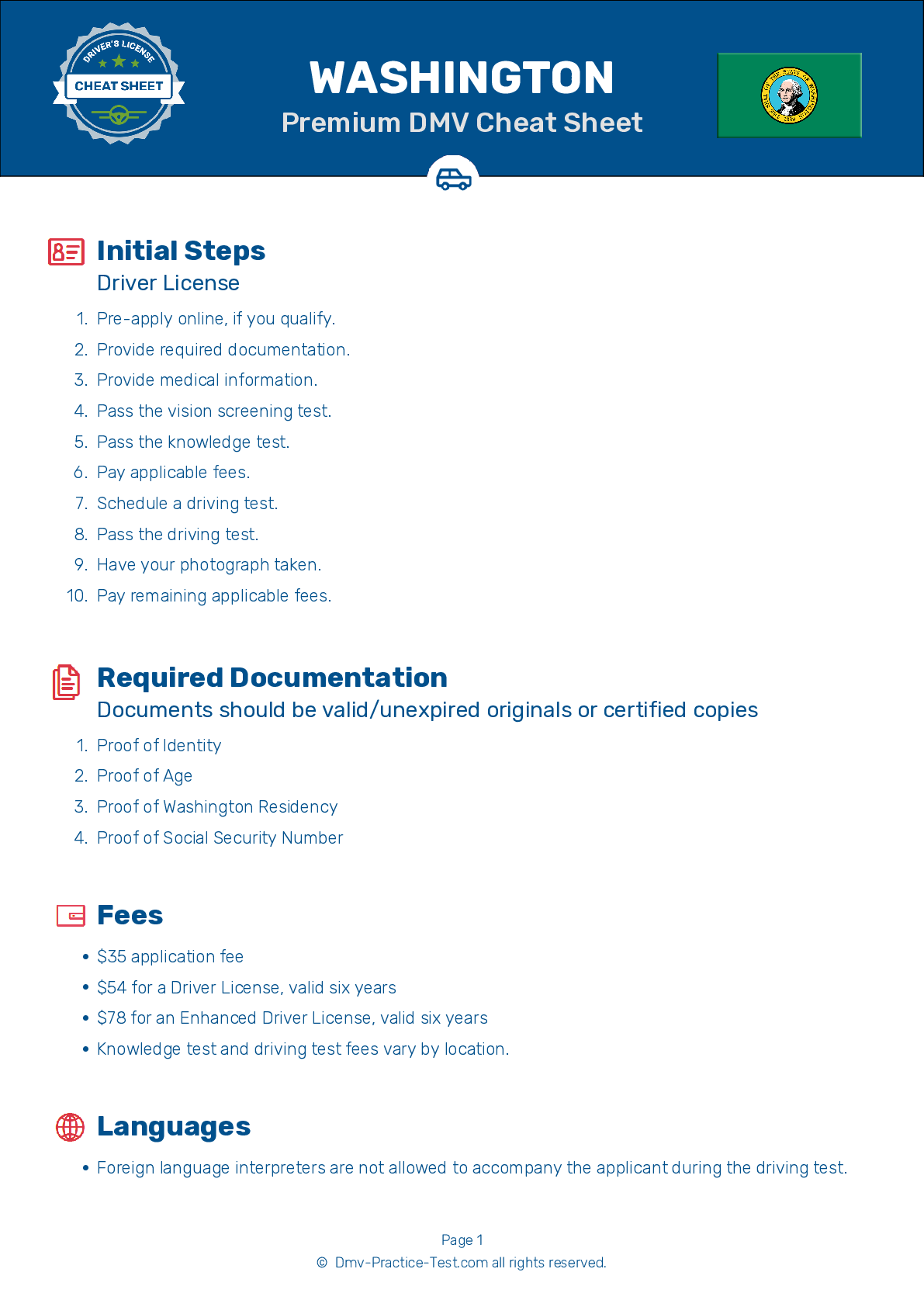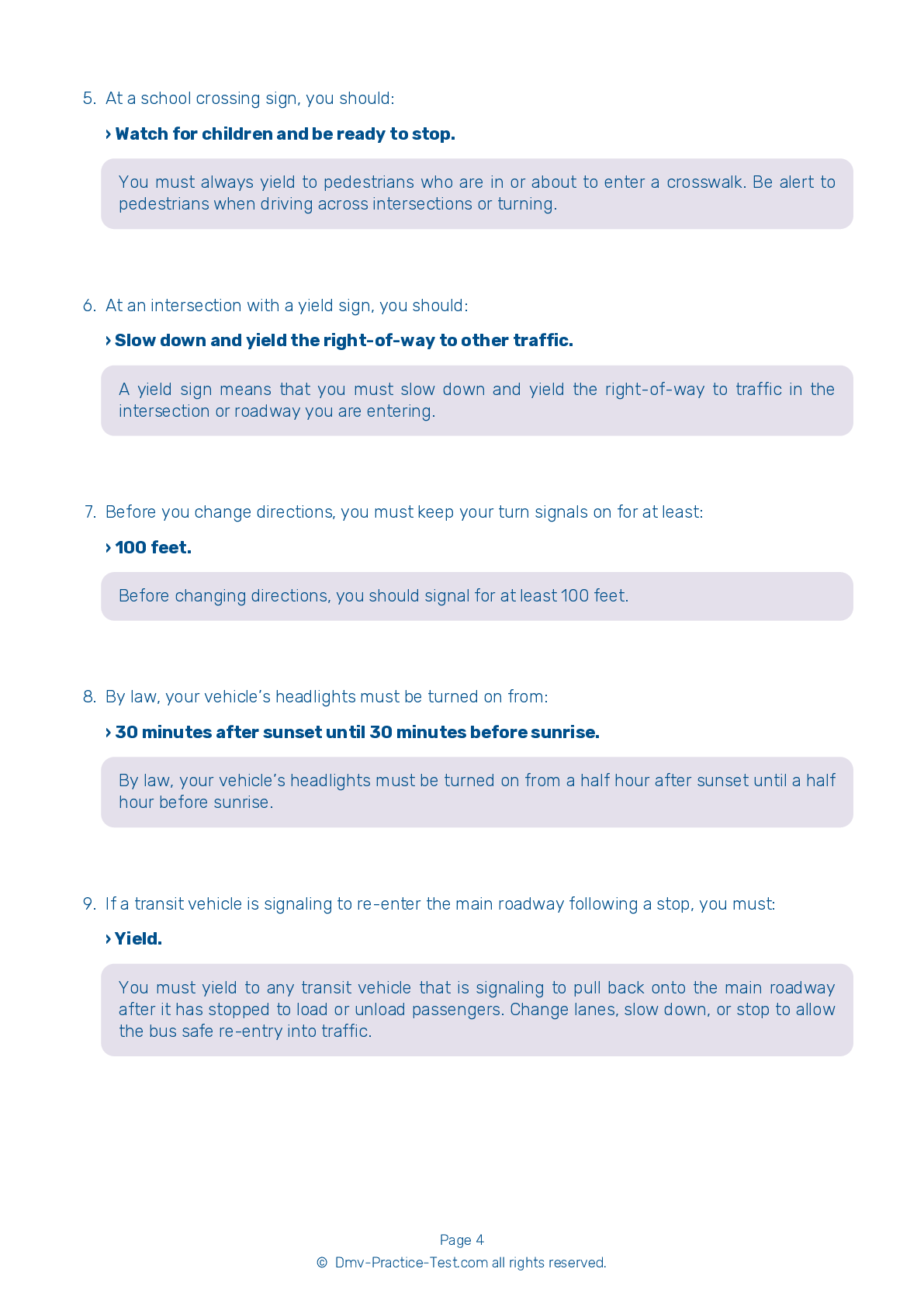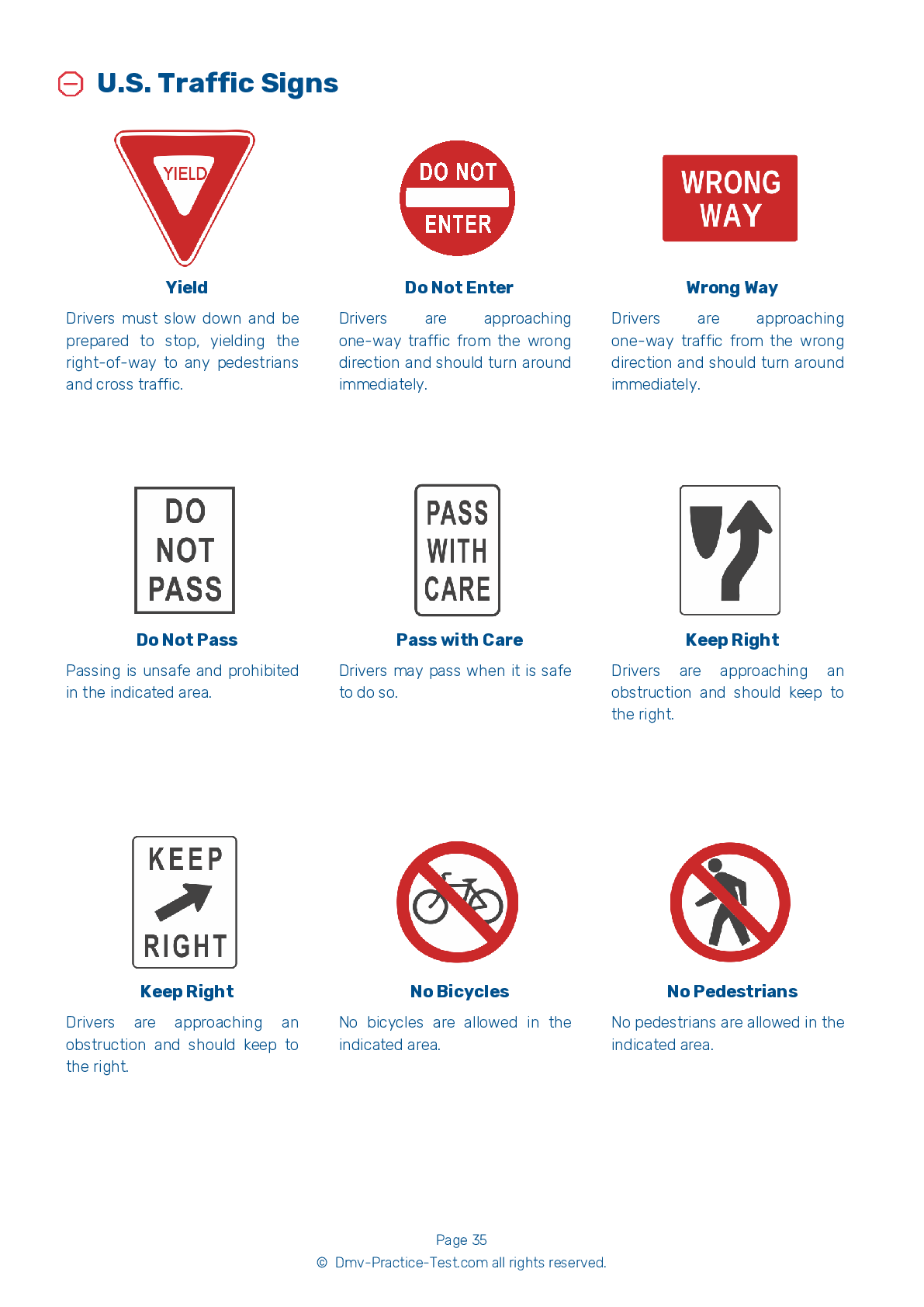FREE Washington DMV Practice Test #16 Page 3 of 4
The Washington DMV practise examinations have been updated for January 2025. It includes questions based on the Washington Driver Handbook's most significant traffic signals and legislation for 2025. Use actual questions that are very similar (often identical!) to the DMV driving permit test and driver's licence exam to study for the DMV driving permit test and driver's licence exam.
On the practise exam, each question gets a tip and explanation to help you remember the concepts. The written component of the official Washington DMV test will feature questions about traffic rules, traffic signs, and driving statutes, as well as knowledge from the Driver Handbook.
To obtain a passing grade, you must correctly answer 20 of the 25 questions. Use the practise exam provided by the Washington Department of Motor Vehicles to help you prepare for your instruction permit or driver's licence.
The DMV exam is available in several languages.
Using any kind of testing assistance will result in an automatic fail, and the DMV may take additional action against your driver's licence, so stay away from it.
13 . At dusk or on overcast days, you should:
At dusk or on overcast days, you must turn on your headlights. Dim your lights to their low beam setting when within 1,000 feet of an approaching vehicle and when within 500 feet of a vehicle that you are following. When driving in poor weather, always use your low beams.
14 . Which of the following commonly causes traffic accidents?
Driving too fast for conditions is a major cause of motor vehicle crashes. Being inattentive to surroundings can cause a driver to collide with other vehicles. Most rear-end collisions are caused by drivers following other vehicles too closely.
15 . Before turning left, it is important to:
When turning left at a traffic signal, you must yield the right-of-way to pedestrians and oncoming traffic.
16 . At night, it is hardest to see:
Compared to signs and other roadside objects, pedestrians are hardest to see at night.
17 . You are coming to an intersection and have a green light. Pedestrians are crossing against the red. You should:
Yield to pedestrians and cars that may be caught in an intersection when you have a green light. Be careful around pedestrians under every circumstance.
18 . A single broken yellow line down the center of a two-lane road indicates:
Yellow lines are used to separate traffic moving in opposite directions. Dashed lines indicate that drivers directly next to the line are permitted to pass when it is safe to do so.
2025 Washington | Frequently Asked Questions
1. Complete a driver education course if you're under 15 ½.
2. Visit a driver licensing office.
3. Provide proof of identity, Social Security number, and residence.
4. Pass the knowledge test.
5. Pay the required fee.
6. If you're under 18, a parent or guardian must sign the application.
Remember, with a permit, you must always have an adult 21 years or older in the car with you.
1. Not checking mirrors and blind spots.
2. Incorrect signaling or forgetting to signal.
3. Lack of steering control.
4. Improper lane positioning and changing.
5. Not following traffic signs or signals.
6. Inadequate observation at intersections.
7. Speeding or driving too slowly.
8. Failing to yield the right of way where necessary.
Remember, practice is key to overcoming these errors.



